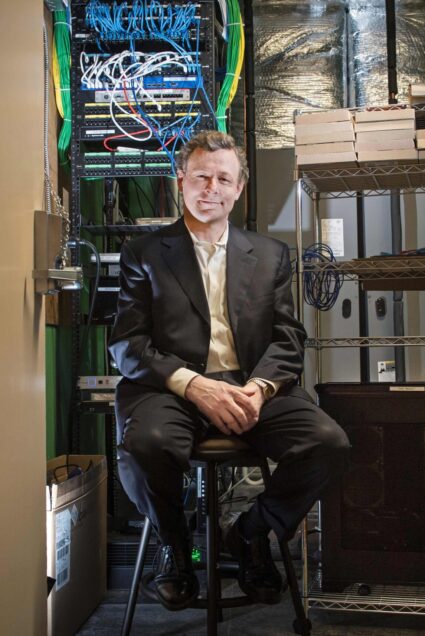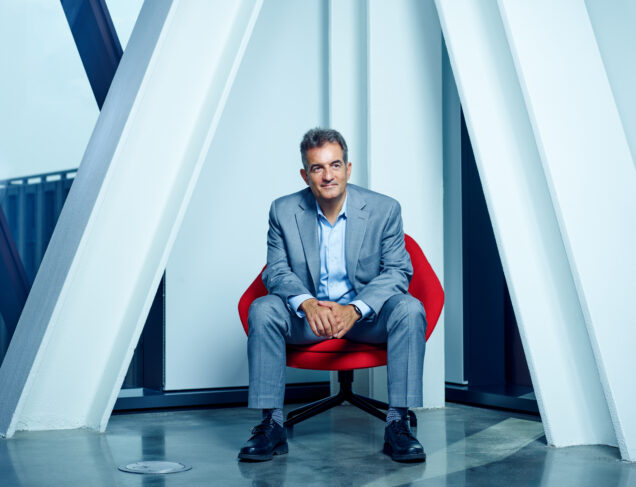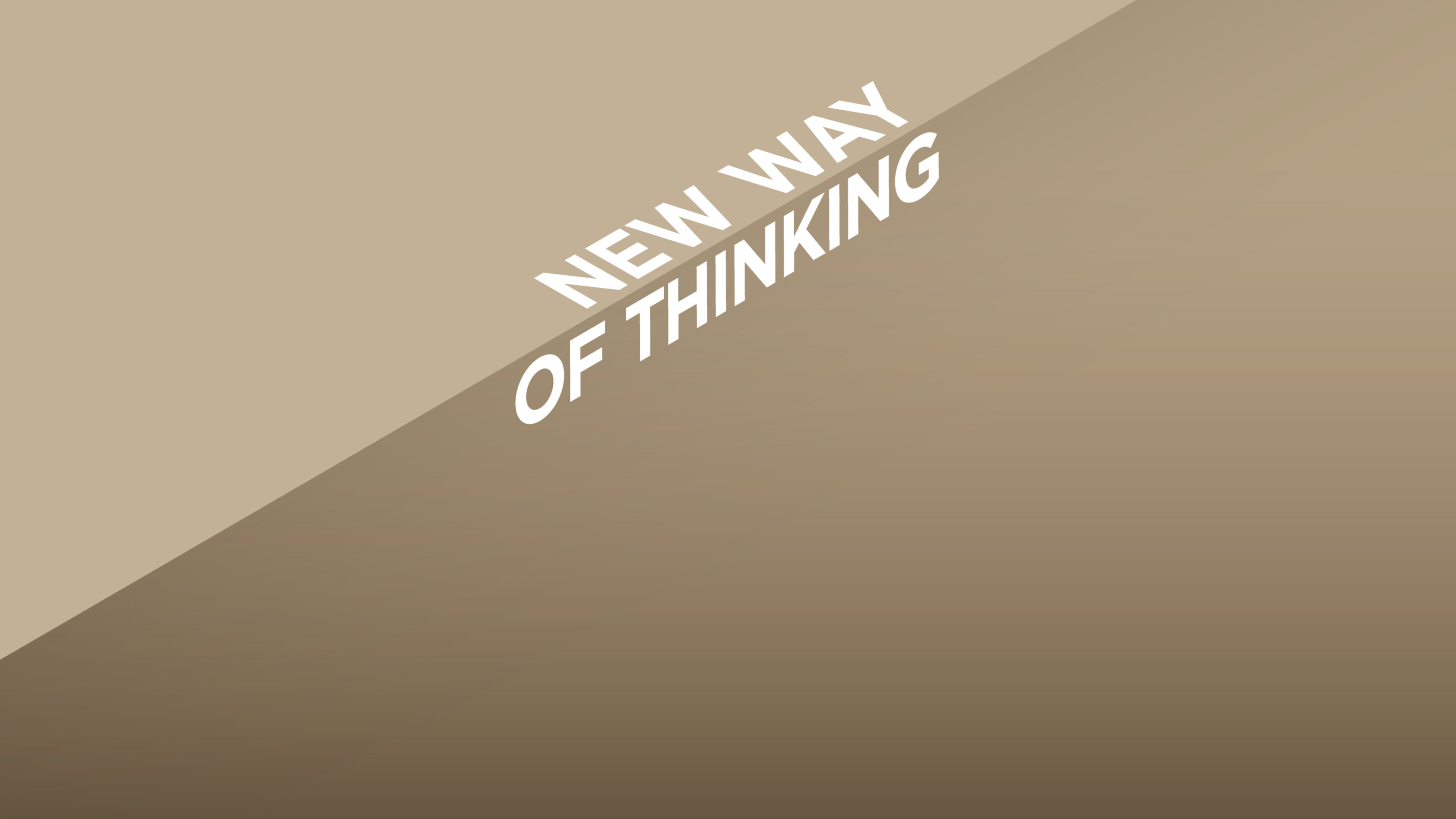Artificial Intelligence
USING AI TO EXPAND OUR LIMITS
Some liken the advent of generative artificial intelligence to the invention of the printing press—a disruption for the ages. Tools such as ChatGPT are rapidly expanding the limits of research, innovation, and knowledge creation—the very substance of our mission.
While our researchers are busy harnessing artificial intelligence and machine learning to make advances in medicine, our experts in computing, data sciences, and ethics, along with our students, are collaborating to develop policy and practices for research and classwork as this new age dawns.
PEDAGOGY IS NOT STATIC
“We teach students to think through writing—this idea is perceived to be under threat,” says Chair of Faculty Affairs for Computing & Data Sciences WESLEY WILDMAN, who is also a professor of philosophy, theology, and ethics. Pedagogy is not static, he says.

In early 2023, almost 50 undergraduates in Wildman’s inaugural Data, Society and Ethics class worked on a blueprint for academic use of ChatGPT and similar artificial intelligence models. Called the Generative AI Assistance (GAIA) Policy, it addresses grading and describes use in assignments, the disparity between students who use ChatGPT and those who don’t, and the pedagogically productive applications of the technology.
“The printing press changed the way we think, changed the way we taught each other,” says Wildman. “It changed everything about education. This is similar in scale.”
The student-led GAIA Policy calls for a practical and beneficial incorporation of ChatGPT into the learning experience, rather than a complete ban.
Wildman shared the policy with other faculty members, including those on the CDS ACADEMIC COMMITTEE, “all of whom indicated that it would be good for other courses to adopt or use as a starting point.”
The printing press changed the way we think, changed the way we taught each other. It changed everything about education. This is similar in scale.
— Wesley Wildman, Chair of Faculty Affairs for Computing & Data Sciences
DETECTING DEMENTIA IN YOUR VOICE
For others at the University, the benefits of artificial intelligence and machine learning are very clear.
Engineers at BU have developed a machine learning–powered computational tool that can determine from a simple voice recording your likelihood of developing Alzheimer’s.
Currently, it takes a lot of time—and money—to diagnose the disease. After running lengthy in-person neuropsychological exams, clinicians must transcribe, review, and analyze every response in detail.
The researchers found a way to detect cognitive impairment from audio recordings of neuropsychological tests—no in-person appointment needed. Their findings were published in Alzheimer’s & Dementia: The Journal of the Alzheimer’s Association.
“This approach brings us one step closer to early intervention,” says Distinguished Professor of Engineering IOANNIS PASCHALIDIS, a coauthor on the paper and director of the RAFIK B. HARIRI INSTITUTE FOR COMPUTING AND COMPUTATIONAL SCIENCE & ENGINEERING.

Paschalidis says faster and earlier detection of Alzheimer’s could drive larger clinical trials that focus on individuals in early stages of the disease and potentially enable clinical interventions that slow or prevent cognitive decline: “This detection model can form the basis of an online tool that could reach everyone and increase the number of people who get screened early.”
